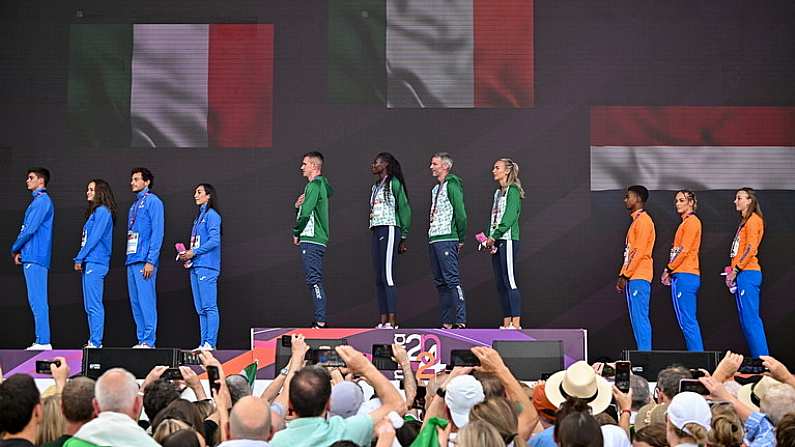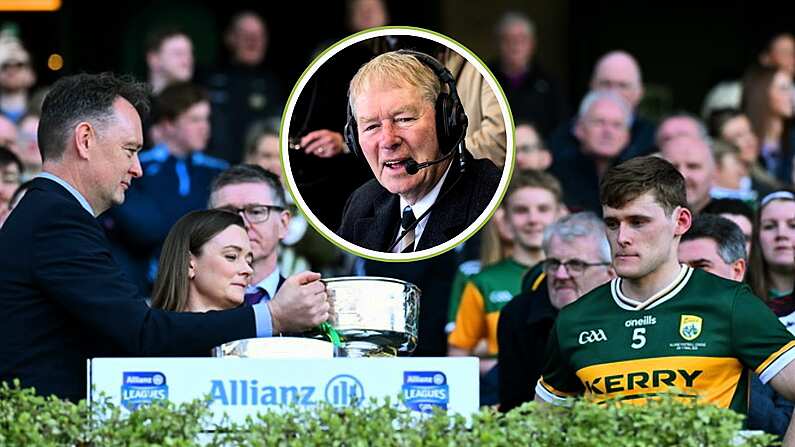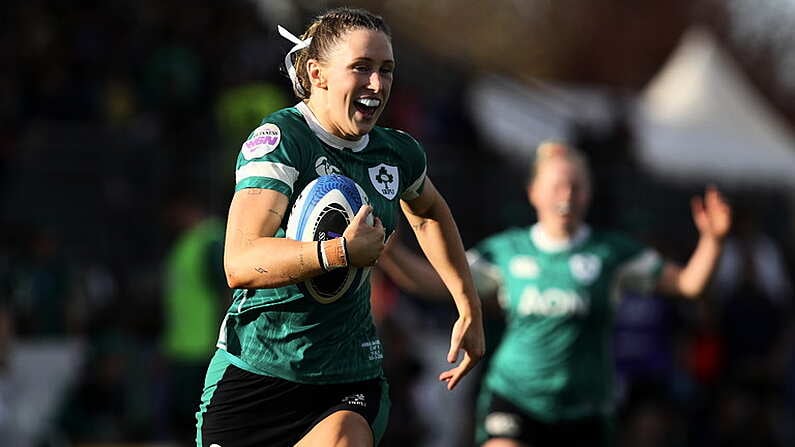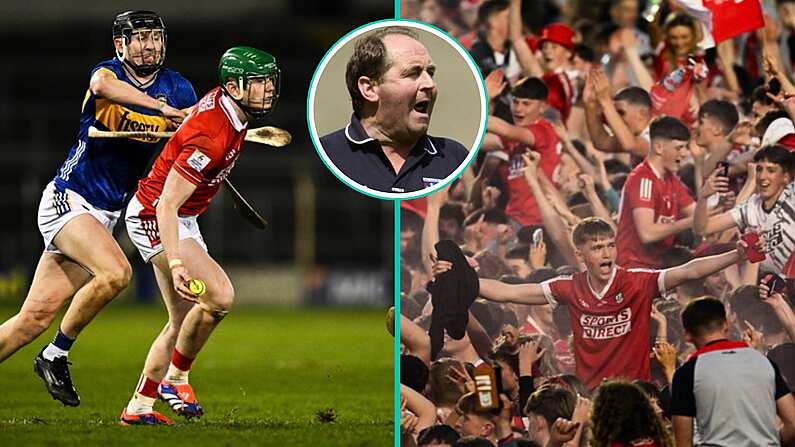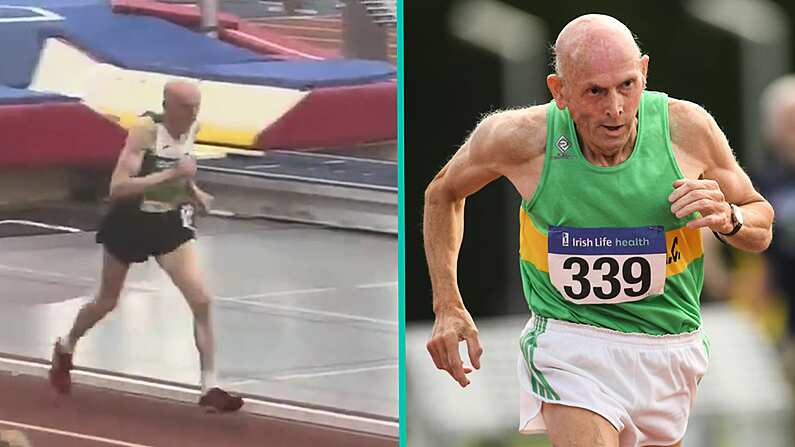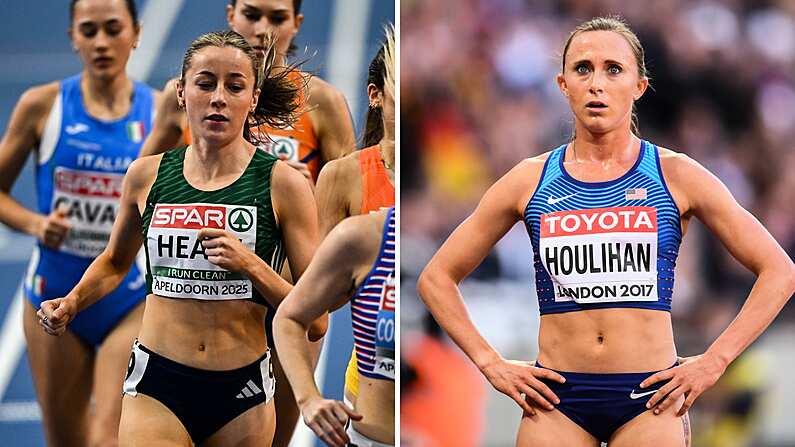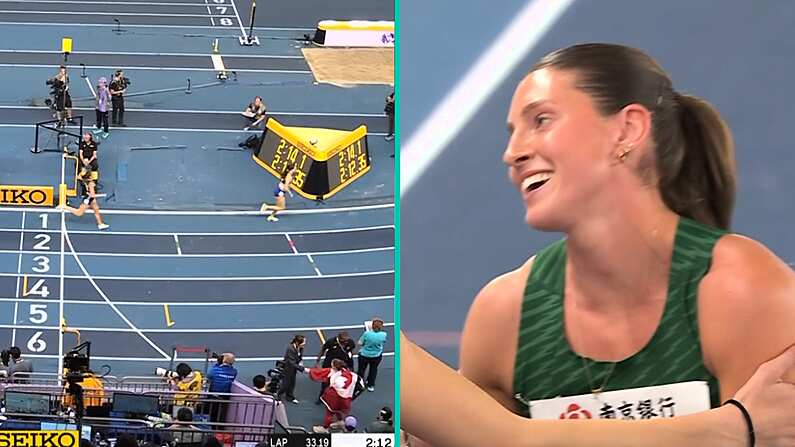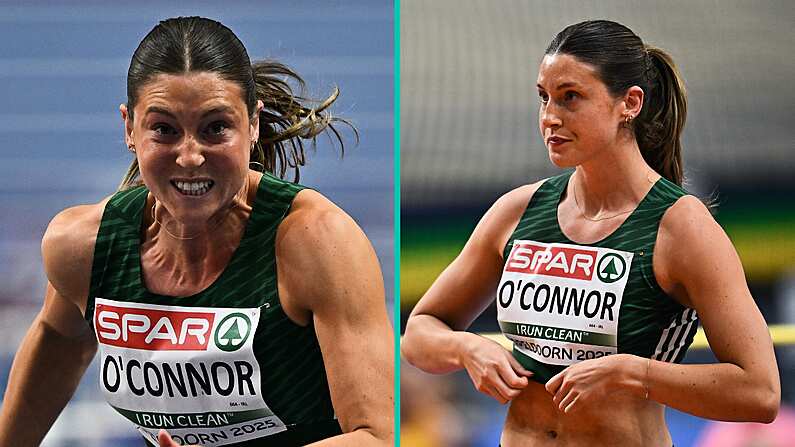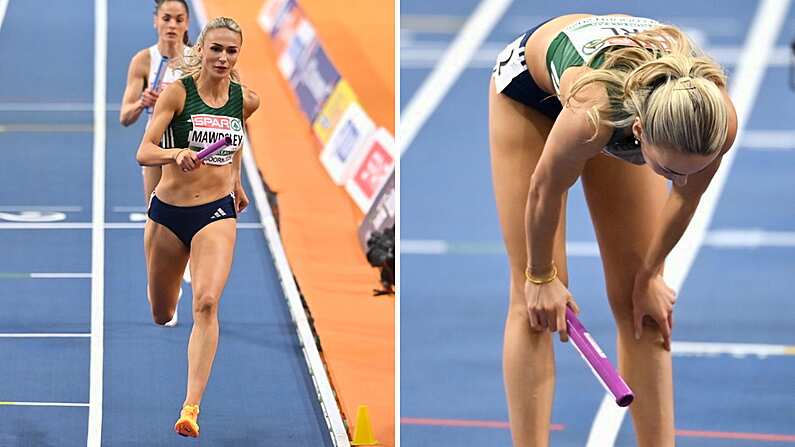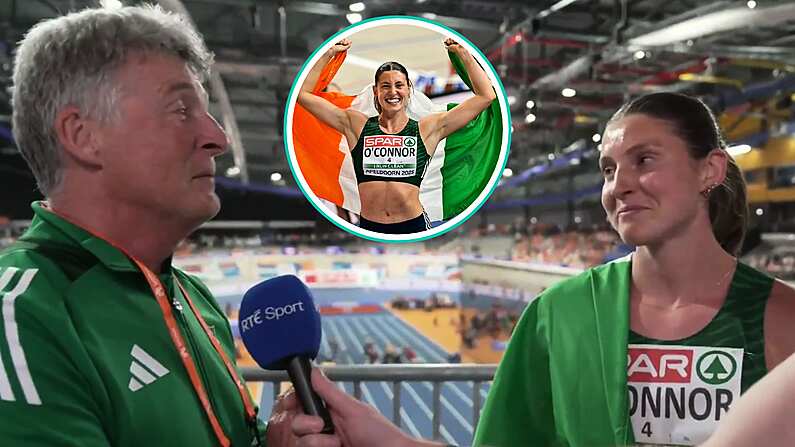The past week people with no interest in Irish sport discovered Rhasidat Adeleke and some of them, if only a tiny amount of them, have declared she isn’t Irish. Thankfully, they don’t get to choose her nationality and Rhasidat can continue to represent Ireland with as much grace as she has always done.
“She’s Irish and that’s that!” screamed some online. That’s not for them to decide either, though. The first part is true – she is definitely Irish - but online commentators don’t get to decide if that’s the end of any nationality talk for her or any other individual, even if their heart is in the right place.
Nationality isn’t, and please excuse the awkward segue here, a black and white issue for many. Rhasidat is Irish-born and clearly very proud to represent Ireland, but that doesn’t mean she can’t feel Nigerian too. She has as much right to feel an affection for her ancestral home as the dozens of sport stars who were born in Britain, the United States or Australia to Irish parents or grandparents.
Is Paris-qualified Sophie O’Sullivan – born and raised in Melbourne, US college educated – Irish? She has chosen to represent the country of her mother, so the answer for sporting purposes is yes. She’s also allowed to call herself Australian. If she had chosen to compete for Australia, that would not lessen her right to call herself Irish. Rhasidat and Sophie can both be Irish, and they can both choose to be proud of the other nations that are part of their makeup. It’s a personal decision and choosing to represent one nation in a sport doesn’t mean they have to forget any other nations that they may consider themselves a part of.
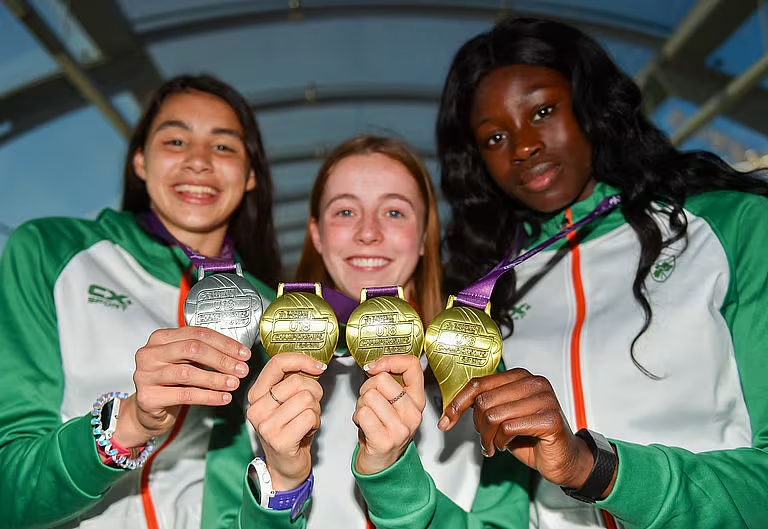
9 July 2018; Team Ireland athletes, from left, Sophie O'Sullivan, Ballymore Cobh AC, Cork, with her silver medal she won in the Girls 800m event, Sarah Healy, Blackrock AC, Dublin, with her gold medals for winning the Girls 1500m and 3000m events, and Rhasidat Adeleke, Tallaght AC, Dublin, with her gold medal for winning the Girls 200m event, during the Team Ireland homecoming from the European Athletics Under-18 Championships in Gyor, Hungary, at Dublin Airport in Dublin. Photo by Piaras Ó Mídheach/Sportsfile
The Olympics is still the biggest international sporting event in the world and there aren’t too many nations who won’t have dual nationalities competing for them, with even more being the children of immigrants. Ireland will be represented in Paris by athletes with parents from as varying sporting backgrounds as Vietnam and Germany. We’ll have athletes born in the USA, France, and more. There are Irish born athletes set to compete for Denmark, Australia and more. Athletes with Irish ancestry will compete for countries as far apart as Hong Kong and Uganda. You get the theme here, individuals can have multiple nationalities and appearing in a sporting vest for one doesn’t have to affect how they feel about another.
The Anglo-Irish element
That’s all before we start discussing the Irish-British relationship, particularly for those who were born in, or live in, Northern Ireland. Prior to the Rio and Tokyo Olympics Rory McIlroy had to field questions for months about who he was going to represent. McIlroy gave a very measured response and said his loyalty to the Golfing Union of Ireland swayed him to represent Ireland. Whatever he decided, he knew that he would be a target for “the other side”. McIlroy is British. He’s also Irish. Those two things can happily co-exist for him but there is always an element that refuse to let him be both. You don’t have to be a flag-waving, badge-kissing Irish sports star, to be an Irish sports star. McIlroy can turn up, play golf at the Olympics, and hopefully win a medal for Ireland without having to “prove” his Irishness to anybody, and he certainly doesn’t have to give up any right to call himself British.
Football and rugby – by far the two highest profile international sports we compete in – have been part of the nationality discourse for years. Rugby chatter tends to sway between discussion of the IRFU’s search for “Irish qualified” players from the southern hemisphere, and discussion of the naturalisation of players who move here to play for the Irish provinces. The “residency rule” that allows players to live in a country qualify to play for their national team after a set period of time – initially 3 years, now 5 years – is slightly at odds with most sports. Football and the other Olympic sports require a person to be a citizen of that country, rugby doesn’t, but every country has their naturalisation requirements and five years now fits most of them.
The IRFU has long had a policy of seeking Irish-qualified players to bolster their ranks, but this is no different to how most sports operate with ancestry qualifying you for a) citizenship and b) the opportunity to represent that nation pretty much everywhere. Of course, the IRFU has long tried to temper nationalistic tendencies with changes made to their flag and anthem to accommodate players from Ulster who consider themselves more British than Irish.
The Irish football team might be the first great exponent of the “granny rule” but several countries have followed us in maximising their player pool by using second and third generation players since. The Jack Grealish and Declan Rice situations brought out a lot of anger in Irish football fans, but, as we’ve discussed above, their nationality is a choice for them, and them alone. Declan Rice can feel proud of his Irish heritage and continue to represent England. Some football fans mightn’t like hearing it, but being anti-English is not a prerequisite of feeling Irish! (For the sake of clarity: you don’t have to support all Irish qualified athletes representing other nations, and you can, of course, hope the English football team loses every game it plays).

23 March 2018; Republic of Ireland players, from left, Conor Hourihane, Scott Hogan, Sean Maguire, Declan Rice, Shane Duffy, Jeff Hendrick and Alan Browne during the International Friendly match between Turkey and Republic of Ireland at Antalya Stadium in Antalya, Turkey. Photo by Stephen McCarthy/Sportsfile
Irish football is on the cusp of being on the other side of the “granny rule” discussion. As immigrants have established themselves as working and living in the country, their children are now competing with their schools and local teams. No sport attracts a wider array of nationalities as football and as can be seen by the surnames playing for the Ireland underage teams, many of our best young players come from immigrant backgrounds. Some of them may go on to represent the land of their parents, just as Messrs Houghton, Aldridge, Walters and more did for Ireland. Recently Ireland under19 star Kevin Zefi was rumoured to be switching allegiance to Albania. Any targeting of him by Irish fans would be completely hypocritical as the FAI court Celtic’s Rocco Vata – the Scottish born son of an Albanian footballing hero.
No longer a binary issue
So that’s a lot of words on how nationality is no longer a binary issue. Ireland has shown that it can accept sporting stars with little obvious connection with our country and we’re more than happy for them to express their Irishness through sport. We must understand that nationality can be a difficult issue for some though, and we can’t ask every athlete who represents Ireland to act in the same manner. Some won’t be comfortable singing an anthem, others won’t drape themselves in a tricolour if they win. It’s not that hard to allow individuals express themselves as they wish.
Of course, Rhasidat Adeleke did proudly drape herself in a tricolour, and she has only ever spoke in glowing terms of what representing Ireland has meant to her and her family. She wasn’t abused by some online vermin because of any notional doubt in her nationality; she was abused because she is black. Adeleke isn’t the only European medal winning athlete with an immigrant parent, but she was the only one to receive abuse because the people abusing her don’t care about nationality, they care about skin colour.
Balls.ie is a sports site, and there can be no question that Irish sport is improved by people of all races competing in, and for, Ireland. They deserve nothing but the same respect as everyone they compete with and against. Not because of sport, but because every person regardless of whether they’re one of the world’s most exciting athletes or whether they clean the venues we watch them in, deserves to live without being abused because of the colour of their skin.
It's been heartening to see an overwhelming level of support for Rhasidat since the interview with her coach revealed how the abuse has affected her. Let’s hope that support extends to the rest of the black Irish community.

